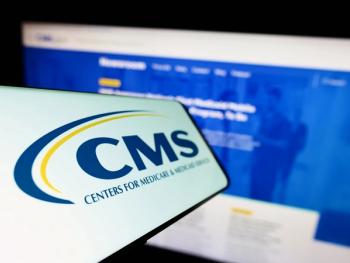
Gene Therapies for Rare Diseases Twice as Likely to Win FDA Nod, Study Finds
None of the cell and gene therapies that reached the final regulatory submission stage were rejected by the FDA.
Rare disease gene therapies are more than twice as likely to earn FDA approval compared with other drug types, according to a new analysis.
The
Since 2017, the one-time treatments designed to provide lasting effects from a single dose have transformed from theoretical to practical, with FDA-approved therapies jumping from zero to 30. The analysis, led by Sharon Phares, Ph.D., of the NEWDIGS FoCUS initiative at Tufts Medical Center, evaluated nearly 600 clinical trials spanning 35 years, looking at durable cell and gene therapies [dCGTs], or therapies that provide at least 18 months of clinical effect from a single administration.
The results varied by treatment type. Gene therapies for rare, inherited conditions consistently outperformed conventional drugs at every stage of development. Meanwhile, cell therapies such as CAR-T treatments for blood cancers showed a different pattern — their early-stage trials had similar success rates to traditional cancer drugs (around 8%), but they pulled significantly ahead in later phases. Perhaps most striking is that none of the cell and gene therapies that reached the final regulatory submission stage were rejected by the FDA.
The analysis also looked at the type of approval. Of the approved rare disease therapies, 83% received full approval, and of those that initially received accelerated approval, half obtained full approval during the study period.
“Phase 3 and phase 2/3 clinical trial success is never guaranteed, but here, dCGT programs showed relatively greater success (68–75%) compared with all therapeutic benchmarks,” the study authors wrote. “And so far, no dCGT biologics license application submitted to the FDA has failed to gain eventual approval.”
The study authors noted, however, that their data can’t distinguish between treatments that fail for medical reasons versus strategic ones. For example, three programs targeting sickle cell disease were shelved in 2023, likely because companies anticipated the coming of Vertex Pharmaceuticals’ Casgevy (exagamglogene autotemcel) and Bluebird bio’s Lyfgenia (lovotibeglogene autotemcel or lovo-cel). Casgevy was the first CRISPR-based therapy to receive FDA
In the earlier phases of development, researchers suspected that many therapies were discontinued for strategic reasons.
“Overall, the findings presented here support the early hope that dCGTs would possess higher clinical development success than other therapeutic modalities. But, as this analysis also suggests, clinical development success requires surmounting strategic and financial risks as well as scientific ones,” the authors wrote.
Last year, NEWDIGS, which is part of Tufts’ Institute for Clinical Research and Health Policy Studies (ICRHPS), and the Institute for Clinical and Economic Review (ICER) released a paper that looked at solutions and policy options for how to pay for high-cost gene therapies when there is still so much uncertainty about the outcomes and the durability of clinical benefits.
ICER and NEWDIGS obtained feedback from 22 experts from payer organizations, large and small biopharmaceutical manufacturers, patient advocacy groups, providers and others.
One of the biggest concerns from payers is the uncertainty about the durability of gene therapies’ benefits over time. From their discussions, ICER and NEWDIGS found that payers believe there should be five years duration of clinical benefit to justify the high one-time prices.
Newsletter
Get the latest industry news, event updates, and more from Managed healthcare Executive.

























